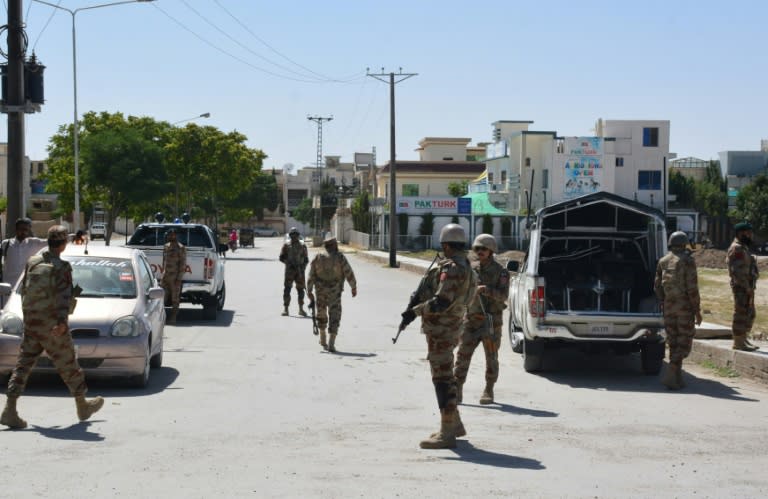Two Chinese nationals kidnapped in Pakistan

Two Chinese working in Pakistan were kidnapped Wednesday, local police and China's state media said, an attack which could raise safety concerns for Beijing's multi-billion dollar investments in the country. The abductions happened around midday in Quetta, the capital of the southwestern province of Balochistan, which is at the heart of the $50 billion China Pakistan Economic Corridor (CPEC) project but is racked by separatist and Islamist insurgencies. "A Chinese couple was kidnapped from the neighbourhood of Jinnah town in Quetta today," senior local police official Aitzaz Goraya told AFP. "They were dragged into a vehicle without number plates by three unknown men," he said. One Chinese woman managed to escape as the men began firing in the air to scare off onlookers. A passer-by, Muhammad Zahir, was shot as he tried to prevent the abduction. He told AFP he saw three men forcing a Chinese woman into a white car but she was resisting and crying. "I stopped to observe the situation but they had forced the woman in the car by then and were pushing the man. "So I rushed to them and asked what they were doing. One of them said, 'We are from the crime branch of the police and we are taking them for investigation' and I told them that they should not misbehave with people. Then the driver came out and shot me in my leg," the 35-year-old said. Chinese state media confirmed the kidnapping, while deputy chief of mission in Islamabad Zhao Lijian said the embassy was working towards their release. He said the pair had been studying Urdu at a language centre. Local police had earlier said they were teaching Chinese. China is ramping up investment in its South Asian neighbour as part of a plan unveiled in 2015 that will link its far-western Xinjiang region to Gwadar port in Balochistan with a series of infrastructure, power and transport upgrades. Enrolment in Mandarin-language courses has skyrocketed as a result, to prepare Pakistanis for an influx of tens of thousands of expected Chinese expatriates. Pakistan has been battling Islamist and nationalist insurgencies in mineral-rich Balochistan since 2004, with hundreds of soldiers and militants killed in the fighting. Bordering Iran and Afghanistan, it is the largest of Pakistan's four provinces, but the roughly seven million inhabitants have long complained they do not receive a fair share of its gas and mineral wealth. A greater push towards peace and development by Pakistani authorities, including with CPEC, has reduced the violence considerably in recent years.

